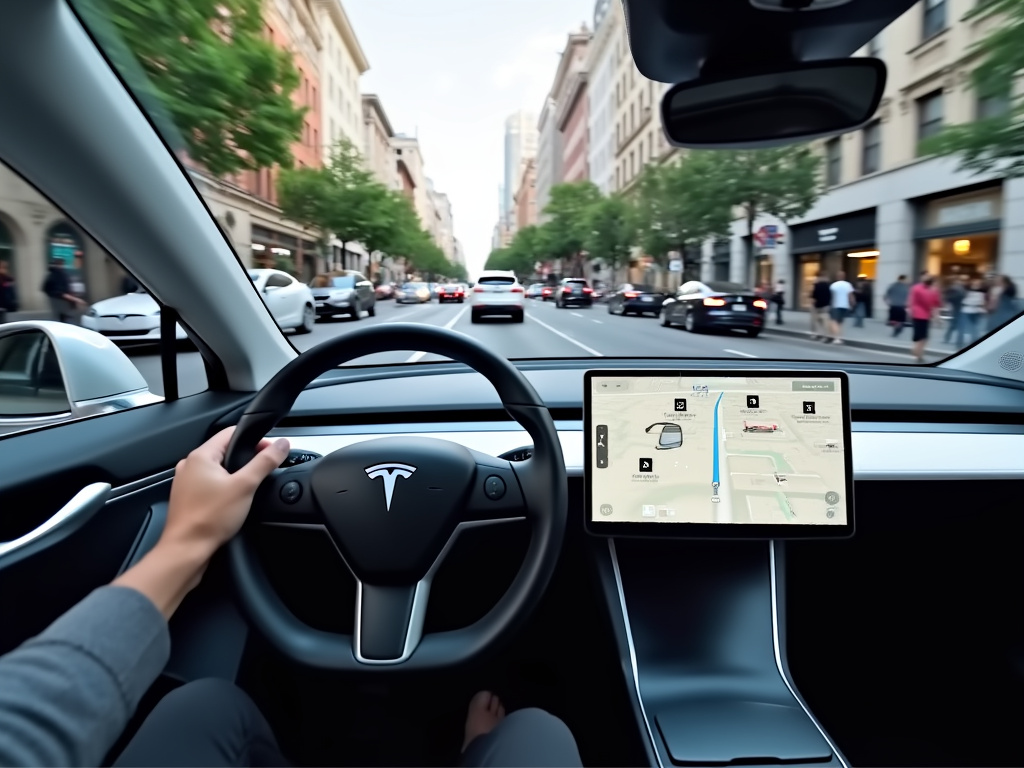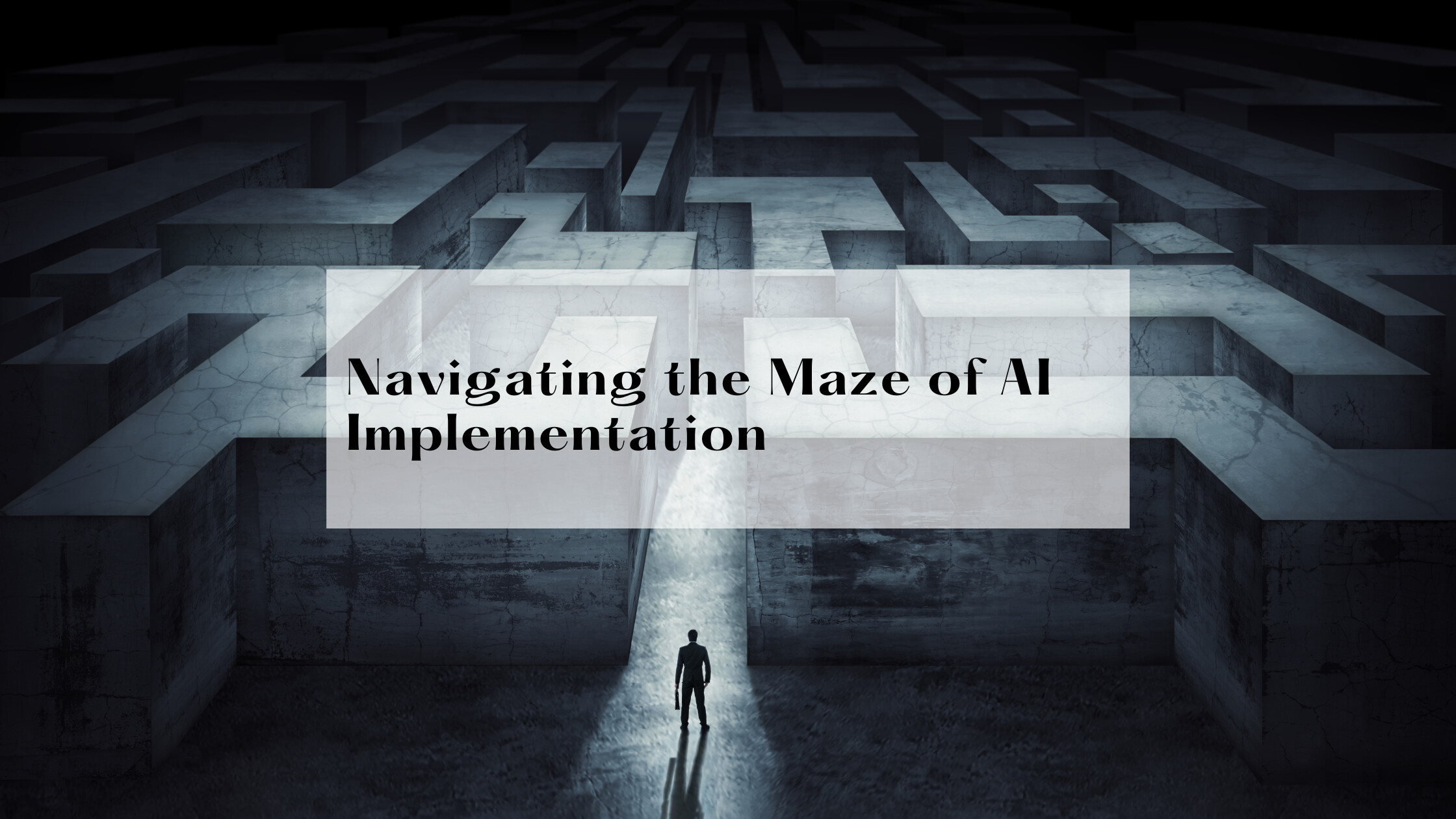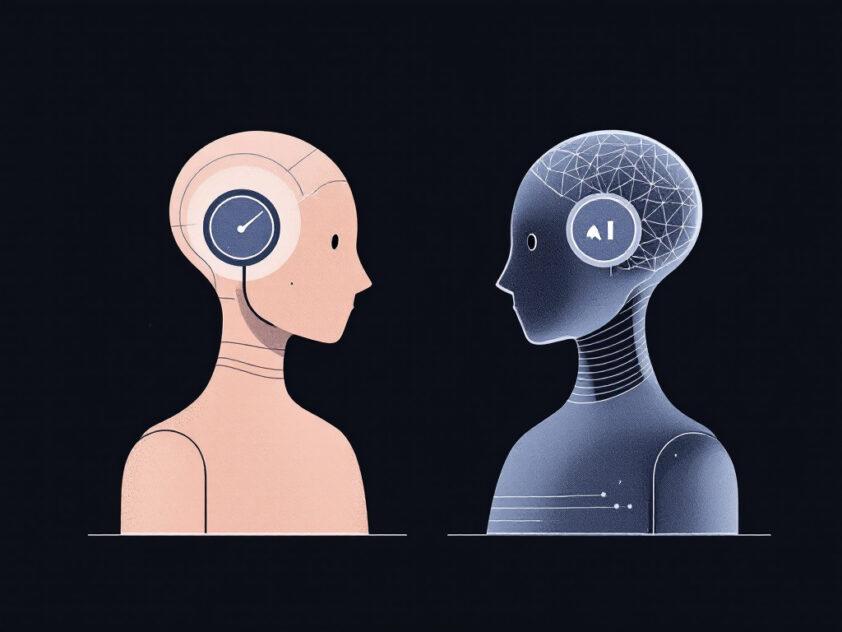Artificial Intelligence (AI) features two key players: intelligent agents and AI agents. Although their names might sound similar, they are quite different. This article will clarify their distinctions by examining their functions, applications, and business relevance.
Both intelligent agents and AI agents are smart computer programs capable of making decisions and performing tasks autonomously. However, they each have unique capabilities. Intelligent agents operate like seasoned professionals, using existing knowledge to achieve goals. In contrast, AI agents are quick learners, continuously acquiring new skills from data.
These advanced tools are transforming business operations by automating mundane tasks, aiding decision-making, and interacting with customers. However, challenges remain.
By the end of this article, you’ll understand the key differences between intelligent agents and AI agents, their real-world applications, and their significance in business. Let’s explore these AI powerhouses!
Core Differences Between Intelligent Agents and AI Agents
At first glance, intelligent agents and AI agents may seem interchangeable, but they operate on fundamentally different principles. Here’s what sets them apart and how each functions in real-world scenarios.
Intelligent agents are like seasoned detectives, constantly learning and adapting to new information. They can make rational decisions based on their environment. Imagine a smart thermostat that adjusts the temperature based on your schedule and learns your preferences over time. It might notice you prefer cooler temperatures when you’re active and warmer ones when you’re relaxing, adjusting accordingly without explicit programming.
On the flip side, AI agents are more like highly efficient personal assistants. They work autonomously but need clear instructions and defined goals to operate effectively. Think of a virtual assistant like Siri or Alexa. They can perform a wide range of tasks, from setting reminders to controlling smart home devices, but they rely on human-defined parameters and objectives to function.
Adaptive Learning vs. Predefined Goals
One key difference lies in how these agents learn and adapt. Intelligent agents excel at adaptive learning, continuously refining their behavior based on new experiences. They’re not just following a script; they’re rewriting it as they go. For instance, an intelligent agent in a self-driving car might adjust its driving style based on road conditions, traffic patterns, and even the preferences of frequent passengers.
AI agents, while powerful, typically operate within more rigid boundaries. They execute tasks based on predefined rules and goals set by their human creators. This doesn’t mean they’re not sophisticated—far from it. An AI agent managing a company’s supply chain might optimize inventory levels and shipping routes with incredible efficiency, but it won’t fundamentally alter its objectives without human input.
Decision-Making Processes
The way these agents make decisions also differs significantly. Intelligent agents use rational decision-making processes that weigh multiple factors and potential outcomes. They can handle ambiguity and make choices in complex, uncertain environments. Consider a financial robo-advisor that not only allocates investments based on your risk profile but also adjusts its strategy in real-time responding to market volatility and global economic trends.
AI agents, while capable of processing vast amounts of data to inform decisions, generally follow more structured decision-making pathways. They excel at tasks where the parameters are clear and the goals are well-defined. A chatbot handling customer service inquiries, for example, can quickly provide accurate information and solutions, but it might struggle with nuanced or unprecedented situations that fall outside its training data.
The key to understanding the difference between intelligent agents and AI agents lies in their autonomy and adaptability. While both are powerful tools, intelligent agents learn and evolve, while AI agents execute with precision within defined boundaries.
Real-World Applications
To really grasp the distinction, let’s look at how these agents might be applied in similar fields:
In healthcare, an intelligent agent might be used to analyze patient data, continuously learning from outcomes to improve diagnosis and treatment recommendations over time. It could adapt its approach based on new medical research or unique patient characteristics.
An AI agent in the same field might be tasked with scheduling appointments, managing electronic health records, or even assisting in robotic surgeries. While highly efficient, its functions would be more narrowly defined and less adaptable without human intervention.
Understanding these core differences is crucial as we continue to integrate AI and intelligent systems into our daily lives and businesses. Each type of agent has its strengths, and choosing the right one depends on the specific needs of the task at hand. As technology evolves, the line between intelligent agents and AI agents may blur, potentially leading to even more powerful and versatile tools in the future.
Real-World Applications of Intelligent Agents and AI Agents

Intelligent agents and AI agents are transforming various industries by automating complex tasks and enhancing decision-making. From the cars we drive to the shows we watch, these digital decision-makers are reshaping our world.
In finance, AI agents make split-second trading decisions by analyzing market trends faster than any human. These systems process vast amounts of data, spotting patterns and executing trades to maximize profits while minimizing risks.
Network monitoring, once a tedious task for IT professionals, has been transformed by AI agents. These digital watchdogs detect anomalies and potential security threats in real-time, maintaining digital infrastructure safety. Imagine a guardian that never sleeps, constantly scanning for trouble—that’s the power of AI in network security.
In smart home automation, AI agents control thermostats, manage energy use, and even order groceries when needed. It’s like having a personal assistant that anticipates your needs before you do.
Intelligent Agents: Driving Innovation
Self-driving cars are a prominent application of intelligent agents. These vehicles use sensors and complex algorithms to navigate roads, promising fewer accidents and more efficient transportation.
Recommendation systems, like those used by Netflix, are powered by intelligent agents. By analyzing your viewing history and comparing it with millions of other users, these agents predict your preferences with accuracy.
Virtual assistants like Siri, Alexa, and Google Assistant are becoming more sophisticated thanks to intelligent agent technology. They understand context, learn from interactions, and perform a wide range of tasks—from setting reminders to controlling smart home devices.
“The true power of intelligent agents lies in their ability to learn and adapt, continuously improving their performance over time.”
Dr. Jane Smith, AI Researcher at MIT
Impact Across Industries
| Industry | Application | Benefits |
|---|---|---|
| Finance | Automated trading | Faster decisions, reduced human error |
| IT | Network monitoring | Enhanced security, real-time threat detection |
| Automotive | Self-driving cars | Improved safety, efficient transportation |
| Entertainment | Recommendation systems | Personalized content, increased engagement |
As these technologies evolve, their impact on our daily lives will grow. From making our homes smarter to revolutionizing healthcare, AI and intelligent agents are ushering in a new era of automation and efficiency.
The next time you ask Siri for directions or marvel at a Tesla navigating traffic, remember—you’re witnessing the power of intelligent agents in action. Welcome to the future—it’s already here.
What intelligent agent applications have you encountered in your daily life? How do you think these technologies will shape our world in the years to come? Let us know in the comments!
Challenges and Considerations for Implementing AI Agents

A figure faces a complex maze, representing AI obstacles. – Via squarespace.com
AI agents hold immense potential to transform industries, but their implementation comes with significant hurdles that organizations must carefully navigate. Let’s explore key challenges and strategies for overcoming them.
Data Privacy and Security Concerns
AI agents require vast amounts of data to function effectively, raising critical privacy and security issues. Organizations must ensure robust data protection measures are in place to safeguard sensitive information. This involves implementing encryption, access controls, and compliance with regulations like GDPR.
As one expert notes, “Prioritizing data privacy and security throughout the AI adoption process is crucial for removing this barrier. Companies must adhere to relevant data protection rules and regulations when implementing sophisticated AI systems.”
Ethical Considerations
The deployment of AI agents raises complex ethical questions around fairness, transparency, and accountability. There’s a risk of perpetuating societal biases or making decisions that lack clear explanations. To address these concerns, organizations should:
- Develop clear guidelines for ethical AI use
- Implement measures to detect and mitigate algorithmic bias
- Ensure transparency in AI decision-making processes
- Establish accountability mechanisms for AI systems
Creating an ethical AI framework is essential. As one industry leader puts it, “It’s like creating a moral compass for the organization – a set of principles that guide decision-making and ensure the ethical use of AI.”
Computational Complexity
AI agents, particularly those using advanced machine learning techniques, can be computationally intensive. This poses challenges in terms of hardware requirements, processing time, and energy consumption. Organizations must carefully consider the trade-offs between model complexity and performance and may need to invest in specialized hardware or cloud computing resources.
One approach to managing this challenge is to “start small and expand gradually.” This allows organizations to test AI capabilities on a smaller scale before committing to large-scale deployments.
Risk of Infinite Feedback Loops
When multiple AI agents interact, there’s a risk of creating unintended feedback loops that can lead to unpredictable or unstable behavior. This is particularly concerning in scenarios where AI agents are making real-time decisions that impact critical systems.
To mitigate this risk, organizations should:
- Implement robust monitoring and control systems
- Design fail-safe mechanisms and human oversight protocols
- Conduct extensive testing in controlled environments before deployment
Integration with Existing Systems
Integrating AI agents into existing IT infrastructure can be a complex undertaking. Legacy systems, data silos, and compatibility issues can hinder smooth integration. Organizations need a thorough implementation plan that considers the intricacies of their IT ecosystem.
As one expert advises, “It’s like creating a detailed blueprint for a construction project – every aspect must be carefully considered and mapped out to ensure a seamless execution.”
Organizational Resistance
The introduction of AI agents can face resistance from employees who fear job displacement or are uncomfortable with the technology. Overcoming this challenge requires:
- Clear communication about the role and benefits of AI
- Comprehensive training and upskilling programs
- Involving employees in the AI adoption process
By fostering a culture that embraces innovation and continuous learning, organizations can smooth the path for AI agent adoption.
AI adoption is not a one-time thing. Instead, it is an unfolding series of steps that organizations take as they move ahead with artificial intelligence.
Industry expert on AI implementation
While the challenges of implementing AI agents are significant, they are not insurmountable. By addressing these issues head-on with thoughtful strategies and a commitment to responsible AI deployment, organizations can harness the transformative power of AI agents while mitigating risks.
Embrace AI with curiosity, adaptability, and determination. Face the challenges that will surely come your way head-on, all to drive innovation and growth forward.
How SmythOS Enhances the Capabilities of Intelligent Agents
SmythOS is a powerful platform that simplifies the creation and utilization of intelligent agents, which are smart digital helpers capable of performing complex tasks. Here’s how SmythOS aids businesses in developing superior AI agents:
Easy-to-Use Visual Tools
SmythOS features a visual workflow builder that allows you to create AI agents by dragging and dropping components together, eliminating the need for coding. This user-friendly approach accelerates the design process of AI agents to meet specific needs.
Works with Many AI Models
SmythOS supports various AI models, enabling you to select the most suitable AI for each task. This versatility ensures you always have the right tool for the job.
Built-in Debugging Tools
SmythOS includes debugging tools that provide insights into the AI’s operations, making it easier to identify and resolve issues. This feature is akin to having X-ray vision to enhance the performance of your AI.
Fits with Your Current Systems
SmythOS integrates seamlessly with existing computer systems, connecting easily to other business tools. This integration allows AI agents to access information from across your business, enhancing their intelligence and utility.
Makes AI Agents Smarter
SmythOS enables AI agents to continually learn and improve, allowing them to handle increasingly complex tasks over time. This ongoing development means they can provide greater assistance to your business as they become more intelligent.
SmythOS democratizes AI usage, making it accessible for individuals without AI expertise to create valuable AI agents. This tool empowers businesses of all sizes to leverage AI for smarter and faster operations.
Integrating SmythOS for Enterprise-Grade AI Deployments
Enterprises are racing to harness the power of AI. But with great power comes great responsibility and security concerns. Enter SmythOS, a game-changer for businesses seeking robust, enterprise-grade AI solutions. SmythOS isn’t just another AI platform; it’s a fortress for your intelligent agents. With its comprehensive security controls, it addresses the paramount concern of many CIOs and CTOs: keeping sensitive data and AI models safe from prying eyes and potential threats.
What sets SmythOS apart in the crowded AI marketplace? Its seamless integration capabilities are a standout feature. Unlike some platforms that require you to overhaul your entire tech stack, SmythOS plays nice with your existing infrastructure. This means less downtime, fewer headaches for your IT team, and a smoother transition to AI-powered operations.
As your business grows, so do your AI needs. SmythOS is built with this in mind, offering scalability that keeps pace with your ambitions. Whether you’re deploying a handful of AI agents or an army of them, SmythOS ensures consistent performance and security across the board.
Security isn’t just a checkbox for SmythOS; it’s woven into the platform’s DNA. From rigorous data encryption to continuous monitoring for anomalies, SmythOS takes a proactive approach to safeguarding your AI assets. This level of protection is crucial, especially for industries handling sensitive information like healthcare or finance.
What good is top-notch security if it hampers productivity? SmythOS strikes a delicate balance, offering robust protection without sacrificing ease of use. Its intuitive interface allows even non-technical team members to harness the power of AI, democratizing innovation across your organization.
Real-world application is where SmythOS truly shines. Imagine a financial institution using AI for fraud detection. With SmythOS, they can deploy intelligent agents that not only spot suspicious activities but also adapt to new threats in real-time, all while ensuring customer data remains ironclad. Or consider a manufacturing company leveraging AI for predictive maintenance. SmythOS enables them to integrate sensor data, historical records, and AI models seamlessly, creating a system that anticipates equipment failures before they happen, saving millions in potential downtime.
The beauty of SmythOS lies in its versatility. Whether you’re in retail, healthcare, or tech, its enterprise-grade deployment options can be tailored to your specific needs. It’s not about fitting your business into a pre-made AI box; it’s about molding AI to serve your unique challenges and goals.
Platforms like SmythOS are becoming indispensable. They’re not just tools; they’re partners in innovation, security, and growth. For enterprises serious about leveraging AI while maintaining ironclad security and scalability, SmythOS isn’t just an option; it’s quickly becoming the gold standard.
Integrating SmythOS for enterprise-grade AI deployments isn’t just about keeping up with the competition. It’s about leapfrogging them, securing your digital assets, and positioning your business at the forefront of the AI revolution. Are you ready to take that leap?
Conclusion: Leveraging Intelligent Agents for Business Success with SmythOS
Intelligent agents are transforming how businesses operate, enhancing decision-making processes and boosting operational efficiency. As AI continues to evolve rapidly, companies face a critical choice: adapt or risk falling behind. Enter SmythOS—a platform democratizing access to powerful AI capabilities.
SmythOS offers a comprehensive ecosystem for developing and deploying AI agents. Its intuitive interface empowers even non-technical users to create sophisticated AI solutions, breaking down barriers that once limited AI adoption. This accessibility allows businesses of all sizes to harness AI’s potential without needing a dedicated team of data scientists.
SmythOS isn’t just about ease of use. Its robust features and seamless integrations ensure businesses can create AI agents tailored to their specific needs. From automating repetitive tasks to providing real-time insights, SmythOS-powered agents drive tangible results—boosting productivity, cutting costs, and freeing up human capital for more strategic work.
Crucially, SmythOS addresses key concerns that often hold businesses back from embracing AI. Its flexible deployment options and powerful optimization techniques ensure peak performance, while built-in security measures provide peace of mind. This combination of power and practicality makes SmythOS an ideal choice for businesses navigating the AI landscape.
Looking to the future, it’s clear that AI agents will play an increasingly central role in business operations. SmythOS puts companies in control of this transformation, offering a platform that not only keeps pace with AI’s evolution but actively shapes it. For businesses ready to unlock the full potential of AI, SmythOS offers a compelling path forward.
AI will transform your industry. With SmythOS, you’re not just keeping up with the future of AI—you’re helping to create it. Are you ready to harness the power of intelligent agents and propel your business to new heights?
